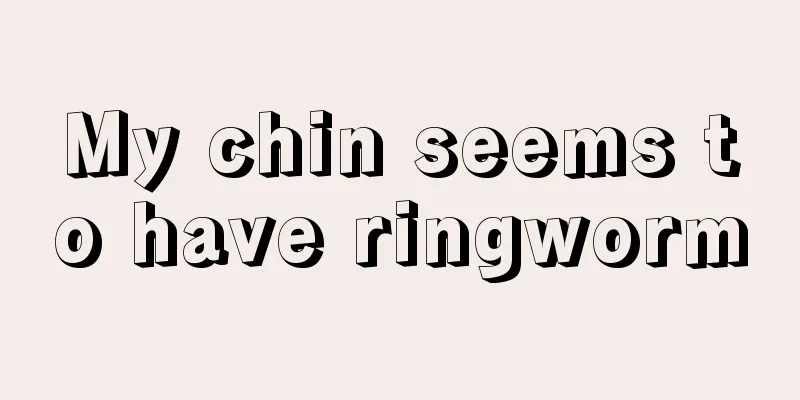Is 32 teeth normal?

|
Generally speaking, the number of teeth in our mouth is fixed. Generally speaking, the number is between 28 and 32, but few people have 32 teeth. So, is 32 teeth normal? In fact, this is also a normal phenomenon. This is mainly because all four wisdom teeth have grown out, so the number of teeth has increased. However, for some wisdom teeth, they need to be removed because they affect oral health. Wisdom tooth refers to the third molar on the innermost alveolar bone in the human mouth, which is exactly the eighth tooth counting from the central incisor. Because it erupts very late, generally between the ages of 16 and 25, when a person's physical and psychological development are close to maturity, it symbolizes the "arrival of wisdom" and is therefore commonly called "wisdom tooth." There are great differences between individuals in the growth of wisdom teeth. Normally, there should be four teeth that are symmetrical in the upper and lower left and right directions. Some people have less than four or even none, and very few people have more than four. The age difference of eruption is also very large. For some people, it erupts before the age of 20, some people erupt at the age of 40 or 50, or never erupt in their lifetime. This is all normal. Modern medicine generally believes that wisdom teeth are remnants of human evolution. Since wisdom teeth grow at the end of the alveolar bone, the alveolar bone of modern humans has degenerated to varying degrees in length, width, and strength due to increasingly refined eating habits, resulting in it being unable to provide sufficient space for the eruption of wisdom teeth. As a result, wisdom teeth often erupt ectopically or are impacted due to lack of space. In addition, the degeneration of the wisdom teeth themselves can also lead to insufficient number of erupted teeth and asymmetric eruption. These eruption abnormalities, coupled with the difficulty in cleaning and prevention, usually manifest clinically as pericoronitis of wisdom teeth, caries of wisdom teeth or adjacent teeth, periodontitis, pulpitis and other diseases, causing severe pain. Therefore, it is recommended to preventively extract abnormal or asymmetrically erupted wisdom teeth as early as possible. What kind of wisdom teeth are worth keeping? 1. The position is relatively correct and is expected to erupt normally. 2. There is no history of inflammation or pain in the soft tissue around the wisdom teeth, and there is no caries in the wisdom teeth. 3. Wisdom teeth that are opposite to the teeth. Wisdom teeth, like the appendix, are the remains of human evolution. The appendix is an organ used by humans in primitive times to digest crude fiber, such as foods like tree roots, while wisdom teeth are teeth used to chew crude fiber foods such as tree roots and bark to help the human digestive system. With the progress of human beings, food has become more and more refined, and humans have gradually degenerated the things they no longer need. The size of the lower jaw has become smaller, and there is almost no space for wisdom teeth to grow on the jawbone, and the upper jaw no longer has opposing teeth. |
>>: Should I correct my teeth?
Recommend
Is cactus poisonous?
Everyone is familiar with cactus. In the office, ...
How does Traditional Chinese Medicine treat breast cancer? Six methods of Traditional Chinese Medicine to treat breast cancer
Traditional Chinese medicine has a unique side in...
The jaw bone is crooked. Which department is good?
Everyone's chin is different from others. The...
What are the western medicines for treating liver cancer?
In the past, the treatment of liver cancer was ma...
What are the effective ways to prevent liver cancer? 4 most effective ways to prevent liver cancer
Overeating and drinking will cause your intestine...
What's the matter with the small lump on the butt?
It is actually quite common to have small pimples...
How long can one live with advanced colorectal cancer
How long can a patient with advanced colorectal c...
What causes onychomycosis? Two common causes
Onychomycosis is actually onychomycosis. The comm...
How long can you live after a glioma relapses? How to treat a glioma relapse?
The appearance of glioma has a great impact on pa...
Cholestatic urticaria
In fact, the skin disease urticaria is also close...
How to protect your cervical spine
In daily life, many people have encountered probl...
Analysis of the therapeutic effects of lung cancer at different stages. Analysis of the therapeutic effects of lung cancer at different stages.
Lung cancer is a common cancer. There are many re...
Beware of these 7 minor symptoms before serious illness
Hoarseness and Laryngeal Cancer Many people take ...
What's wrong with pimples around the belly button?
Usually, different people get acne in different p...
Can people with lymphoma eat seafood?
Regarding the question of whether patients with l...









